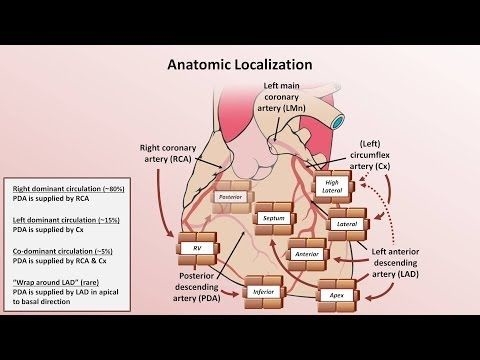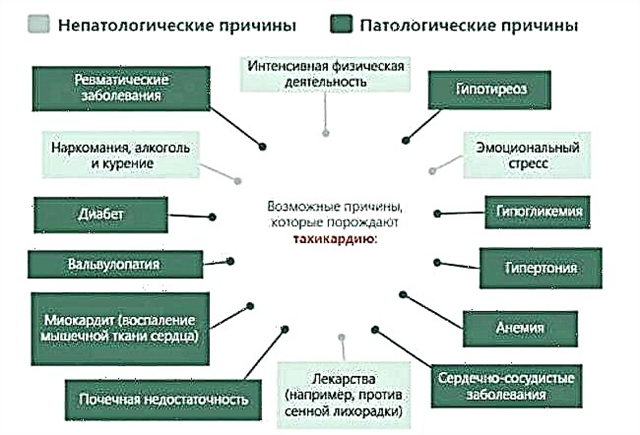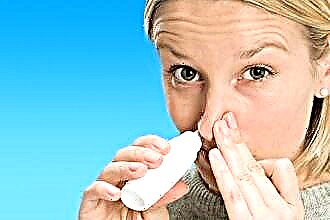Rhinopharyngitis is an inflammation of the mucous membrane of the upper respiratory tract - the nasopharynx and larynx. In the absence of proper treatment, the inflammation drops lower, affecting the trachea and bronchi. Usually acute nasopharyngitis in children appears along with rhinitis. Indeed, if the cause of the disease is a harmful virus or bacterium, it does not stop at the nasal cavity and at an accelerated rate affects the entire nasopharynx. Of course, an irritant of a mechanical, thermal or chemical nature can also be a provoking factor for nasopharyngitis. However, the leading positions are held by the viral and bacterial origin of the disease. Treatment of rhinopharyngitis in children should be under the supervision of a doctor, because its effectiveness directly depends on the correct diagnosis and correctly prescribed drugs.
In most cases, the prognosis for infantile rhinopharyngitis is good. If the treatment was correct and prescribed on time, the child recovers within 7-10 days.
How to make your child feel better
 It is highly discouraged to self-treat a child with rhinopharyngitis. First of all, because serious complications can arise if the treatment is not correct. And secondly, nasopharyngitis can be accompanied by such formidable diseases as diphtheria, measles, scarlet fever or flu. It is impossible to diagnose them by eye. Therefore, as soon as the parents have suspicions that the child is developing rhinopharyngitis, you should immediately call a doctor at home. While waiting for his visit, it is necessary to take measures to alleviate the condition of the baby.
It is highly discouraged to self-treat a child with rhinopharyngitis. First of all, because serious complications can arise if the treatment is not correct. And secondly, nasopharyngitis can be accompanied by such formidable diseases as diphtheria, measles, scarlet fever or flu. It is impossible to diagnose them by eye. Therefore, as soon as the parents have suspicions that the child is developing rhinopharyngitis, you should immediately call a doctor at home. While waiting for his visit, it is necessary to take measures to alleviate the condition of the baby.
- The first step is to adjust the temperature and humidity level in the room where the child is. The optimum temperature is 20-21 ° C, and the humidity indicator is not less than 60%. At the same time, it is necessary to constantly take care of the purity of the air - open the windows daily for ventilation, as well as wash the floors and wipe the dust.
- Clear mucus from the nose and rinse. If the child is old enough to blow their nose on their own, they should be asked to do so. Then rinse the nose with saline or "Humer" ("Aquamaris", "Salin"). If the baby is sick, you must first eliminate the snot from the nasal passages. For this purpose, it is permissible to use an aspirator or the smallest syringe. In a cleansed nose, it is necessary to inject a saline solution (the drugs are indicated above) - 3-4 drops in each nostril. This washing should be done after the baby wakes up, as well as before each feeding.
- Children over 5 years old can gargle with antiseptics. Such an event is recommended to be carried out 4 to 6 times a day only after a meal.
- It is permissible to reduce body temperature only if it has exceeded 38 ° C and has a tendency to increase. The child can be given syrup (Nurofen or Panadol). To reduce the temperature in infants, it is better to use candles ("Tsefekon"). Giving the baby this or that drug, you must strictly adhere to the dosage indicated in the instructions for age.
- The nutrition of a child with rhinopharyngitis should be gentle and consist of liquid meals at a comfortable temperature. It is strictly forbidden to give hot, too cold, as well as spicy, salty or sour foods. It is also important to comply with the requirements for a drinking regimen in case of illness. The increased volume of fluid will help the body to cope with the disease faster. The child should be given warm fruit drink, dried fruit compote, weak tea.
Rhinopharyngitis treatment
In most cases, rhinopharyngitis is treated on an outpatient basis, that is, at home. However, if the attending physician advises nevertheless to hospitalize the baby, you should not refuse this offer. After all, a specialist evaluates all possible risks better. Moreover, no one will just admit it to the hospital. Since the doctor recommends, then there are good reasons for this.
 If rhinopharyngitis is viral, antiviral drugs are prescribed to treat it. Usually the child is treated with:
If rhinopharyngitis is viral, antiviral drugs are prescribed to treat it. Usually the child is treated with:
- "Interferon";
- "Anaferon" (can be given to newborns from 1 month);
- "Viferon-gel";
- "Amiksin" (it is allowed to take only from 7 years of age);
- oxolinic ointment.
It is necessary to use the listed medicines when the first symptoms of the disease appear. The sooner you start, the better the effect will be. It is best to start taking them in the first 3 days of illness. Interferon is approved for children of any age. You can use nasal drops or an inhalation solution. "Anaferon" can be dissolved in water if the child is under 2 years old. Babies who already know how to suck lollipops or caramel will be able to suck the pill on their own. "Viferon-gel" and oxolinic ointment are used to lubricate the nasal mucosa. These drugs are allowed even for those babies who were born prematurely. By the way, "Viferon" can also be used to lubricate tonsils, having previously applied the gel to a tampon. Since "Amiksin" is prescribed for older children, it will not be a problem for them to swallow a pill.
Antibiotics can be given to the child only when the test results show that the secondary bacterial flora has joined. Of course, such drugs should be prescribed only by the attending physician. Arbitrariness is strictly prohibited here.
With regard to physiotherapy, the doctor, if necessary, can send the baby to the UHF therapy procedures in the nasal area and in the UHF throat. If a child is worried about a dry, exhausting cough, with the permission of the doctor, you can warm up your legs (with mustard powder baths) and put mustard plasters.
What to use for the nose and throat
To restore full nasal breathing, children are prescribed "Protargol" (1% solution of collargol) - 4 drops in each nostril 2 times a day. To achieve the same goal, you can use "Rivanol" or "Ephedrine" - in the form of a solution. In addition, babies can be prescribed other drugs for vasoconstriction (for example, "Galazolin" - from the age of 3 or "Pharmazolin" - from the age of 6). However, the dosage of these funds and the duration of their use cannot be arbitrarily changed. Otherwise, complications may arise.
 Remember that drops for vasoconstriction are not at all a harmless medicine, from which it will not get worse. Only a doctor can prescribe them to a child. Do not be lazy to read the composition of the nasal drops. If they contain menthol, they should not be used until the age of 3. There is a high risk of vocal cord spasm and seizures.
Remember that drops for vasoconstriction are not at all a harmless medicine, from which it will not get worse. Only a doctor can prescribe them to a child. Do not be lazy to read the composition of the nasal drops. If they contain menthol, they should not be used until the age of 3. There is a high risk of vocal cord spasm and seizures.
To cleanse the nose, it is usually washed with saline, after having sucked off the mucus accumulated in the nasal passages with an aspirator. Older children, as mentioned, can blow their nose on their own before rinsing. After completing the procedure, you should lubricate the nasal passages with petroleum jelly or oxolinic ointment from the outside. Make sure that the air in the room where the child is constantly located is sufficiently humid and fresh.
For gargling, you can use "Furacilin", "Chlorophyllipt", "Rotokan", sea salt, hydrogen peroxide, decoctions of calendula, sage or chamomile. If the baby has not yet learned how to perform such a procedure, you can replace rinsing with inhalation (only if the temperature is within normal limits) with a solution of baking soda or mineral water. Older children can be offered for resorption "Strepsils" (from 5 years old), "Decatilen" (from 10 years old), "Isla-mint" (from 12 years old) and the like. They are good at helping to remove pain and unpleasant sore throat.
How to deal with allergic rhinopharyngitis
If it turns out that the child's rhinopharyngitis is of an allergic origin, it must be treated strictly in accordance with the doctor's prescriptions. The first step is to eliminate the allergen. If this is not possible, then at least limit the baby's contact with him as much as possible. To facilitate breathing, children are usually prescribed nasal drops "Vibrocil" (regardless of age), "Sanallergin" (from the age of 2), "Allergodil" (from the age of 12). Complex therapy involves the use of antihistamine drugs - "Tavegila", "Claritin", "Gismanala", "Clarinase".
If the disease is severe, the doctor may prescribe drops containing corticosteroids ("Dexarinospray", "Flixonase" and the like).
 When the acute phase of the disease has passed and the symptoms have disappeared, the allergist may suggest a special therapy, which consists in administering the minimum doses of the allergen to the child. The main goal is to get his body to produce substances that can interfere with the reaction to the allergen. For some babies, the doctor prescribes the intake of "Histaglobulin" and antiallergic immunoglobulin. They must be taken according to an individually scheduled course and under constant medical supervision.
When the acute phase of the disease has passed and the symptoms have disappeared, the allergist may suggest a special therapy, which consists in administering the minimum doses of the allergen to the child. The main goal is to get his body to produce substances that can interfere with the reaction to the allergen. For some babies, the doctor prescribes the intake of "Histaglobulin" and antiallergic immunoglobulin. They must be taken according to an individually scheduled course and under constant medical supervision.
In order to remove the allergen from the body as soon as possible, during an exacerbation it is necessary to give the child sorbents: Karbolong, Flavosorb, Enterosgel and others. As a rule, various kinds of allergies are accompanied by dysbiosis. Its elimination will help to quickly get rid of the symptoms of allergic nasopharyngitis.
Folk medicines
Before you try any folk remedy for rhinopharyngitis on your child, you should consult a pediatrician. Here are some of the most common recipes.
- Beet juice, freshly squeezed and diluted with clean water in a ratio of 1: 1, can be instilled into the nose. This remedy helps to quickly and permanently eliminate a runny nose and relieve swelling of the nasal mucosa.
- It is necessary to gargle with Kalanchoe juice diluted in warm water in a ratio of 1: 1. It is very convenient that the same drug can be used for nasal instillation. It has a powerful anti-inflammatory effect.
 You can rinse your child's nose with calendula juice, after diluting it with clean water. There should be 0.5 liters of water per tablespoon of juice. It is advisable to do this procedure over any container or washbasin. After all, the washing process assumes that the medicine will flow freely from the nasal passages.
You can rinse your child's nose with calendula juice, after diluting it with clean water. There should be 0.5 liters of water per tablespoon of juice. It is advisable to do this procedure over any container or washbasin. After all, the washing process assumes that the medicine will flow freely from the nasal passages.- If the child is annoyed by a cough, you can prepare an herbal infusion. For the preparation of such a medicine, plantain, licorice root, elecampane, marshmallow or coltsfoot are suitable. The infusion should be prepared from one medicinal plant of your choice. A tablespoon of the selected raw material must be poured with a glass (250-300 ml) of boiling water, and then infused for half an hour. Then the infusion must be filtered and taken 3 times a day, 1-2 tablespoons.
Preventive actions
The most important method of preventing rhinopharyngitis is to harden the child. It involves regular walks on the street in any weather, as well as the choice of the most comfortable clothes in which the child can neither overheat nor freeze. Hardening significantly increases immunity, protecting the child's body from infections.
To the extent possible, it is necessary not to allow the child to come into contact with sick people. If such contact does occur, oxolinic ointment should be used for prophylaxis.
Starting literally from the first days of a baby's life, you need to make sure that he breathes only through his nose. If the child has overgrown adenoids that complicate normal nasal breathing, it is advisable to visit an otolaryngologist to eliminate this problem. It will not be superfluous to remind you that it is necessary to treat chronic foci of infection, as well as fight against dysbiosis and helminthic invasions in a timely manner.
 For the prevention of exacerbations of allergic nasopharyngitis, it is necessary to completely exclude or minimize the baby's contact with allergens. You also need to strictly adhere to everything that the allergist and pediatrician recommended regarding the treatment and diet of the child.
For the prevention of exacerbations of allergic nasopharyngitis, it is necessary to completely exclude or minimize the baby's contact with allergens. You also need to strictly adhere to everything that the allergist and pediatrician recommended regarding the treatment and diet of the child.
And finally
Often, parents mistake a child's rhinopharyngitis for a common cold. However, for babies, especially for babies, this ailment is not at all harmless. Nasopharyngitis can cause complications due to the fact that the infection will spread through the respiratory tract, or become chronic. Therefore, as soon as the child began to sniffle, you need to consult a doctor for reinsurance.
If you properly care for your baby, the risk of developing nasopharyngitis will be significantly reduced. It should be noted that at an early age, rhinopharyngitis can only be recognized by a specialist. Therefore, it is very important that after discharge from the hospital, the baby is monitored at home by a pediatrician.

 You can rinse your child's nose with calendula juice, after diluting it with clean water. There should be 0.5 liters of water per tablespoon of juice. It is advisable to do this procedure over any container or washbasin. After all, the washing process assumes that the medicine will flow freely from the nasal passages.
You can rinse your child's nose with calendula juice, after diluting it with clean water. There should be 0.5 liters of water per tablespoon of juice. It is advisable to do this procedure over any container or washbasin. After all, the washing process assumes that the medicine will flow freely from the nasal passages.

